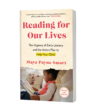Every week, my daughter brings home a list of spelling words, along with a note on the spelling pattern the words exemplify. For example, a recent word list focused on examples of the short o sound spelled with an a following w or qu, e.g. squad, wash, and want. I appreciate that the words are organized around a single, specific spelling concept, so that any time spent on them reinforces a lesson she’s received. (Unlike thematic lists organized by holidays, seasons, or other topics that give little insight into spelling.)
I’ll quiz her on these words, but don’t spend time drilling them. I prefer to chat with her about the underlying concept instead. During the week described above, I asked her for more examples of words that fit the pattern and for examples of words that contradicted it. I asked her if want really has a short o sound. Depending on your accent or dialect, it may sound very different. I give her time to think and respond—because learning, thinking, connecting happens in those pauses.
I respect the teacher and comply with the homework she outsources to parents, but, more importantly, I have my own spelling agenda, too. I value thinking about and engaging with words much more than scores on weekly quizzes. I treat any word lists that come home as just points of departure to bridge back to the spelling ideas, concepts, and patterns that I’m focused on teaching.
As soon as kids can read, parents can start teaching them spelling, via a logical, sequential pattern program, like All About Spelling or Words Their Way for Parents, Tutors, and School Volunteers. Just ten minutes a day can make a world of difference for both your knowledge and your child’s spelling. I’ve found that the hard part isn’t the spelling content. It’s building the habit of teaching it every day. (Stay tuned for future posts on that topic.)
And don’t worry about undercutting or muddling the in-class instruction your children receive. Most kids aren’t getting significant spelling instruction in class, so you may be all they’ve got. (See my list of nine questions to ask teachers about spelling to get a sense of what is or isn’t happening in your child’s classroom.)
If your child is lucky enough to be taught spelling in school, your proactive work at home still adds value. Working one-on-one, you can move at your child’s pace and take time to go deeper in areas of greatest enjoyment or struggle. You can provide meaningful opportunities for word learning and spelling practice.
A good teacher can tell you which spelling patterns they’re teaching and when, so you can support those lessons at home if you choose. You can choose to rearrange lessons covering similar content from your home curriculum to reinforce schoolwork—or you can keep going in your own way, acknowledging but not emphasizing the homework. Your choice.
Most important is keeping your eye on the end goal, strong spelling to support fluent reading and writing—for life, not quizzes.
Does your child receive weekly spelling words? If so, do they seem to have a rhyme or reason?

Sources and Further Reading


